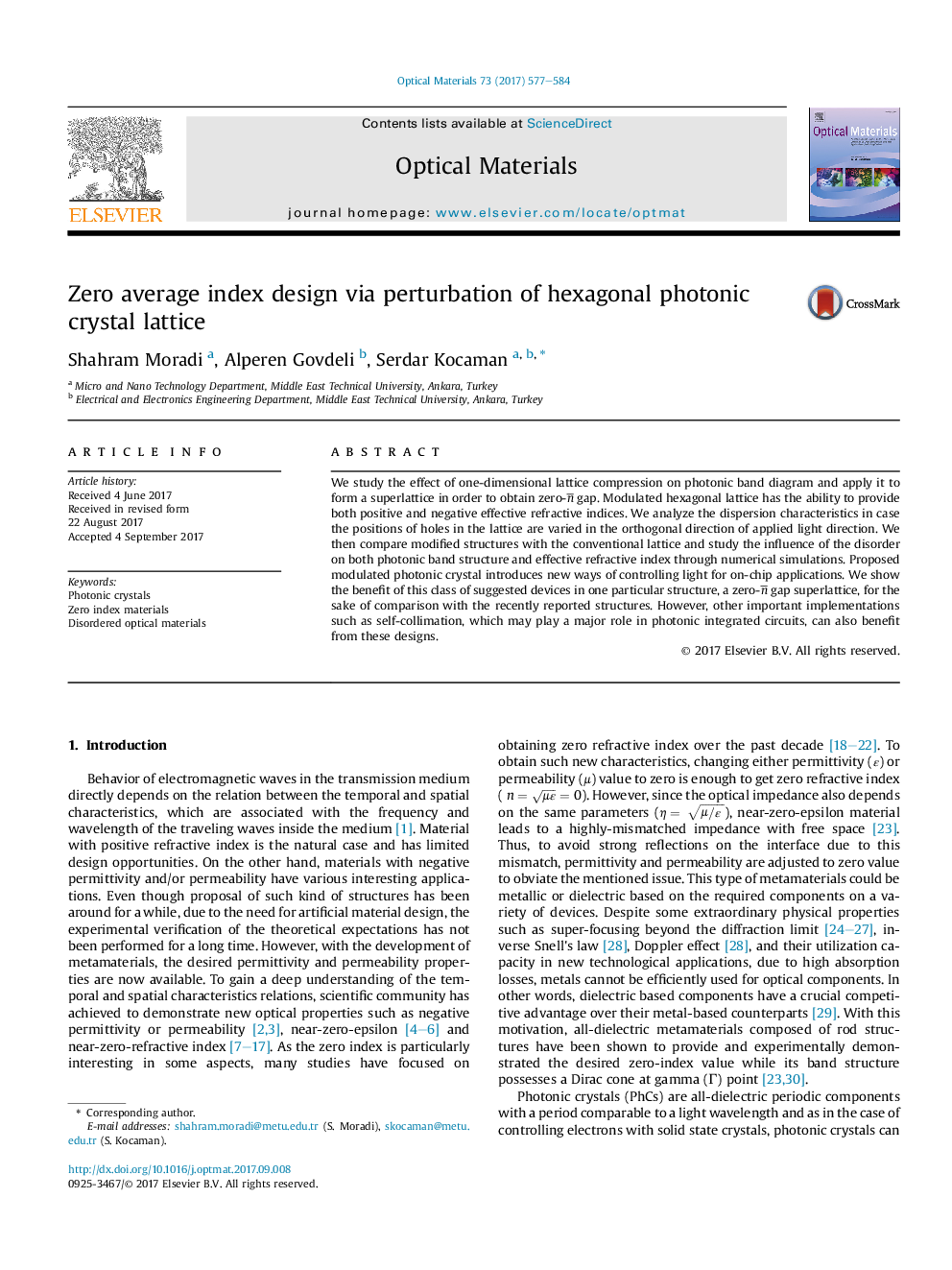| Article ID | Journal | Published Year | Pages | File Type |
|---|---|---|---|---|
| 5442406 | Optical Materials | 2017 | 8 Pages |
Abstract
We study the effect of one-dimensional lattice compression on photonic band diagram and apply it to form a superlattice in order to obtain zero-n¯ gap. Modulated hexagonal lattice has the ability to provide both positive and negative effective refractive indices. We analyze the dispersion characteristics in case the positions of holes in the lattice are varied in the orthogonal direction of applied light direction. We then compare modified structures with the conventional lattice and study the influence of the disorder on both photonic band structure and effective refractive index through numerical simulations. Proposed modulated photonic crystal introduces new ways of controlling light for on-chip applications. We show the benefit of this class of suggested devices in one particular structure, a zero-n¯ gap superlattice, for the sake of comparison with the recently reported structures. However, other important implementations such as self-collimation, which may play a major role in photonic integrated circuits, can also benefit from these designs.
Keywords
Related Topics
Physical Sciences and Engineering
Materials Science
Ceramics and Composites
Authors
Shahram Moradi, Alperen Govdeli, Serdar Kocaman,
